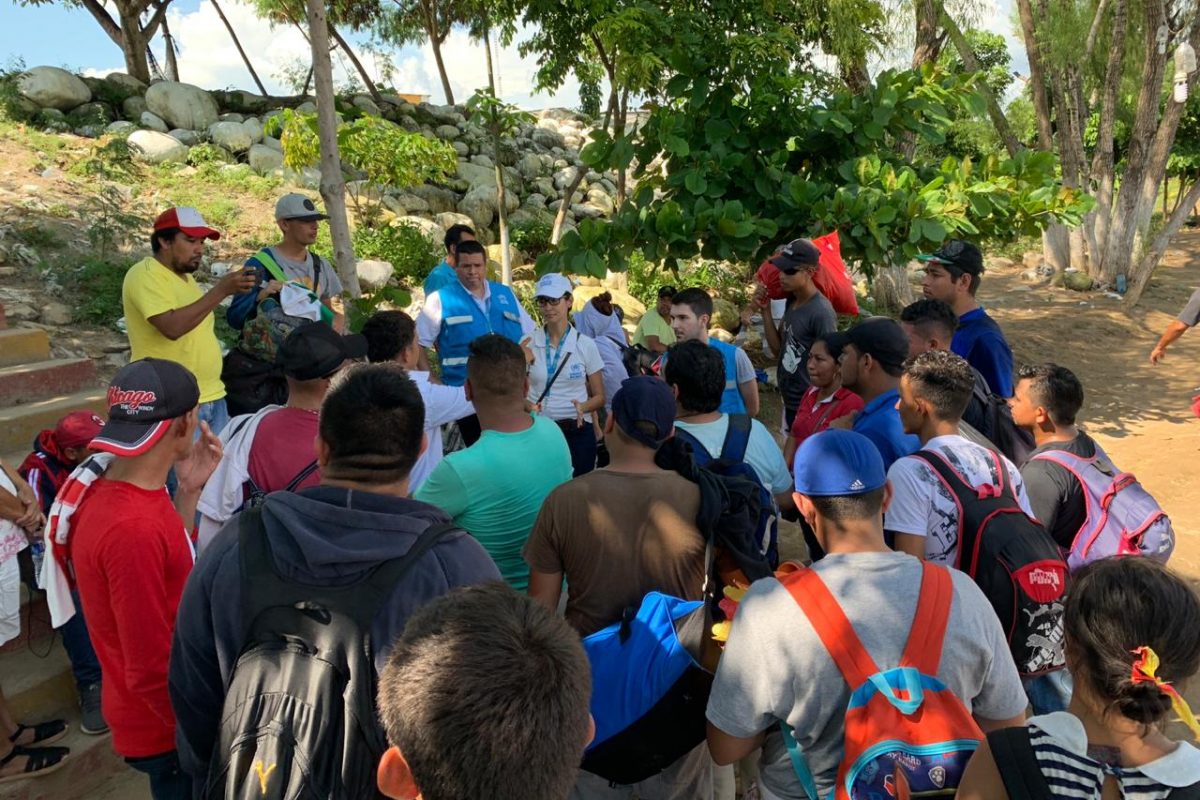Mexican Bishops Call to Protect “Migrants Caravan”

An agency of the Mexican Episcopal Conference called on government agencies to protect people marching in the “migrants caravan” currently headed to the U.S. border.
In a letter addressed to Mexican federal government agencies, Catholic bishops and the public at large, the Human Mobility area of the Mexican Episcopal Conference called on them to “protect” the caravan participants, “among whom there are boys and girls, women, families, youth, and adults.”
The large group of migrants departed from San Pedro Sula in Honduras in mid-October and is heading for the United States through Guatemala and Mexico. The group, which is growing along the way, is known as the “migrants caravan.” The United Nations has estimated that 7,000 people had joined the caravan by 22 October.
Most migrants questioned on the reasons they joined said that they are seeking a better life in the U.S. or Mexico. Others said that they are fleeing gang violence and plan to request asylum upon arrival. They feel that traveling in large numbers provides safety from criminal gangs and traffickers.
“We insist on seeking a joint action,” the Mexican Bishops’ letter states, “to welcome and protect our migrant brothers, especially to ensure that they do not fall into the hands of people who, without scruples, take advantage of them in many ways: trafficking in persons, labor slavery,” or people smuggling.
Signed by Bishop Guillermo Ortiz Mondragón, head of the Human Mobility area and a member of the International Catholic Migration Commission Governing Committee, the letter calls on authorities to apply the Mexican Migration Law “even in the face of unexpected events” like the forming of the caravan.
The letter acknowledges that the exact number of people marching is unknown and warns that they may arrive at parishes that are not prepared to take care of them. The Human Mobility area is coordinating pastoral attention and accompaniment, implemented by 133 shelters and Catholic Church centers in Mexico.
In an interview with Vatican News, Bishop Joe Vásquez, Chairman of the US Bishops’ Conference Committee on Migration, echoed the Mexican Bishops’ encouragement to Church members and all people of good will to protect those traveling with the caravan, while remaining mindful that migration should be approached in a legal and orderly matter.
“The first priority is to take care of those people that are traveling […] Many are leaving very terrible situations of violence, of poverty, of corruption, many of them are escaping from those terrible conditions, and they simply seek to take care of their families and to be able to provide for them. […] They have the right to leave those terrible conditions. Of course, countries also have the right to monitor and take care of their borders and find security,” he said.
Honduras, Guatemala and El Salvador, the home countries of the majority of those who have joined the caravan, consistently rank among the most violent countries in the world. Gang violence, homicide and extortion are rampant. The past years have seen an increase in the numbers of people from these countries fleeing to neighboring countries and to the United States.
In a separate statement, the Human Mobility area commended the Catholic dioceses of Tapachula and San Cristóbal de Las Casas as well as other religious communities, governmental and civil society organizations which “have implemented actions to favor our brothers and sisters on the path of their displacement.”
The “migrants caravan” is capturing a large amount of media attention on both sides of the border.
The U.S. government announced that it will discontinue or reduce foreign aid to Guatemala, Honduras and El Salvador on the grounds that their governments did not stop the caravan, which is traveling through Mexico but is still far from the U.S. border.
- Read (in Spanish) the letter from the Human Mobility area of the Mexican Episcopal Conference